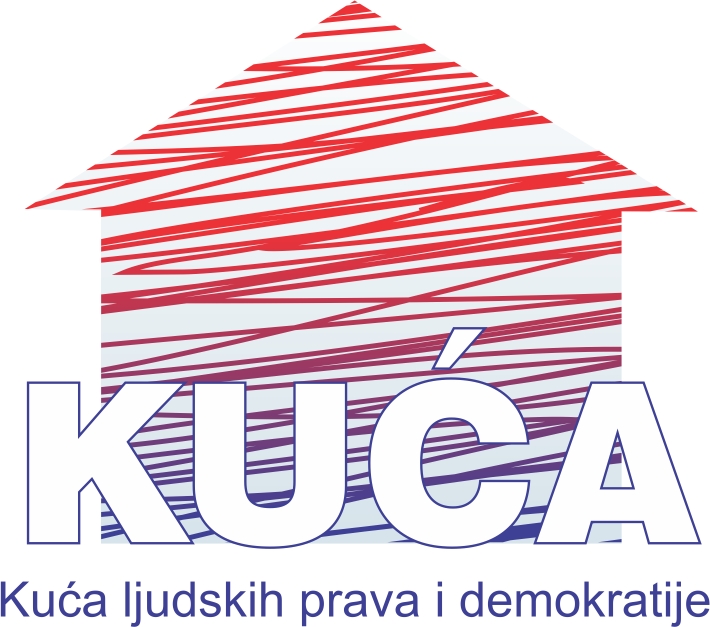See the website of Human Rights House Belgrade.
A tour of the House
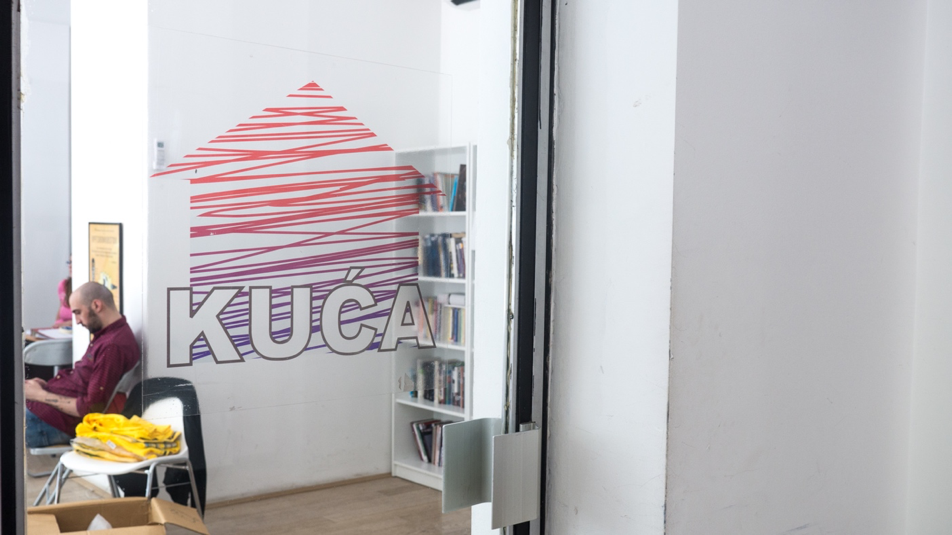
The House’s welcoming meeting space looks out on to the street and is used to host public gatherings and debates.
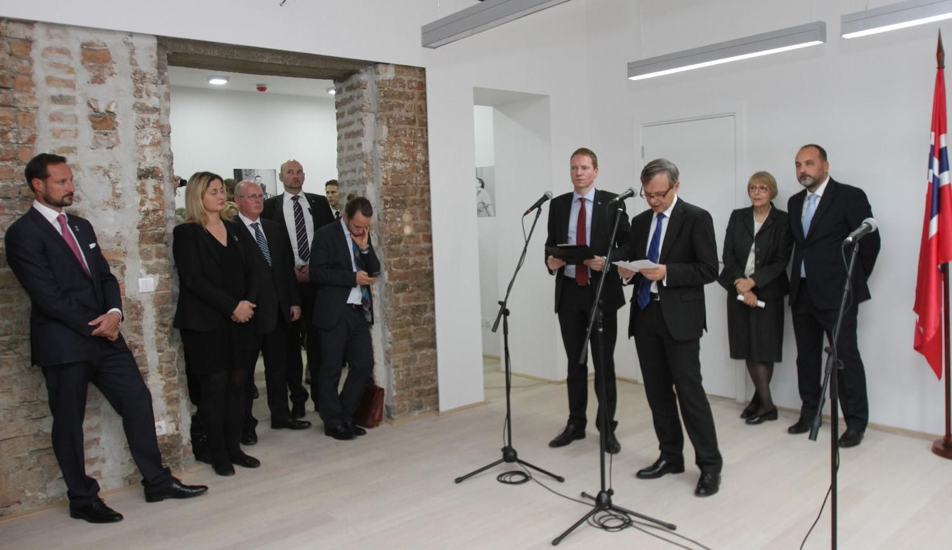
The House opened its doors to the public in November 2014 following reconstruction, attended by H.R.H. Crown Prince Haakon of Norway, Serbian Ombudsman Sasa Jankovic, and the Norwegian Ambassador in Belgrade, Nils Ragnar Kamsvåg. The Norwegian Embassy in Belgrade supported the reconstruction.
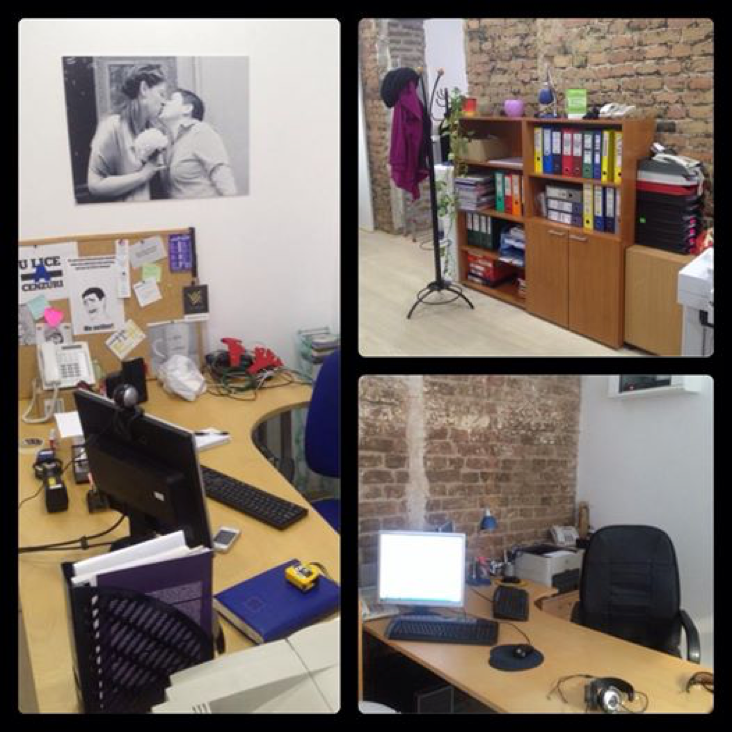
The five organistions within the House share the first-floor dedicated office space. This is filled with exposed brick and light open spaces with glass partitions.
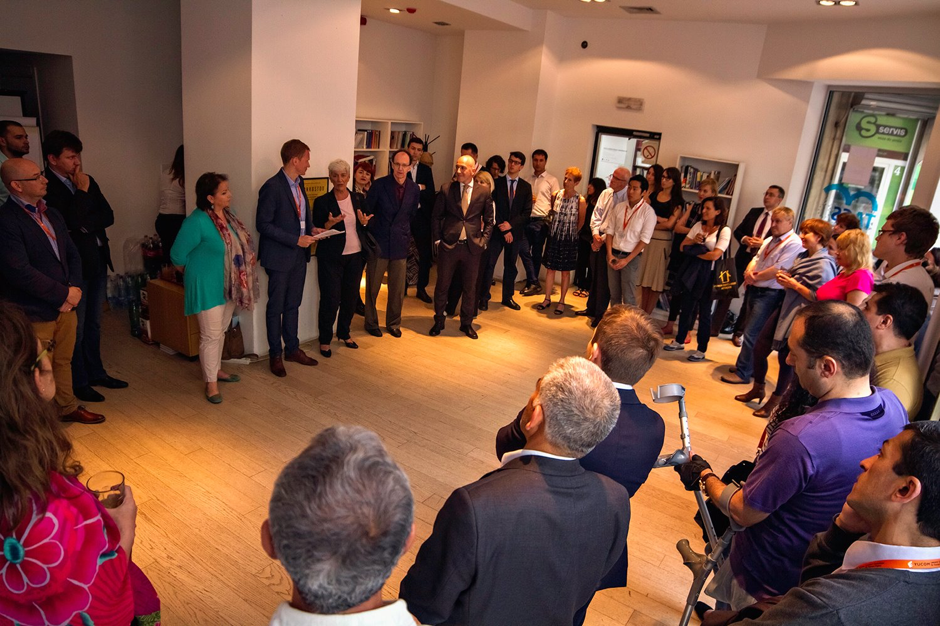
The House hosted consultations with the Special Rapporteur on Judges and lawyers in June 2016, and welcomed those participating to an evening reception at the House.
The organisations in the House
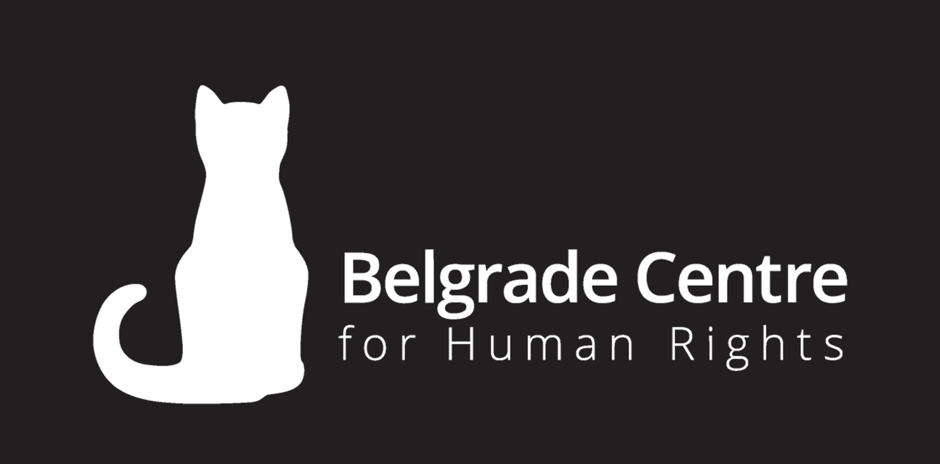
The Belgrade Centre for Human Rights
The Belgrade Centre for Human Rights is a non-partisan, non-political and non-profit association of citizens concerned with the advancement of theory and practice of human rights since 1995. The principal goals of the Centre are advancement of knowledge in the field of human rights and humanitarian law, the development of democracy, and the strengthening of the rule of law and civil society in Serbia and other countries in transition from authoritarianism to democracy. In the ten years of its existence the Centre has endeavored to raise the consciousness of the citizens on the importance and dimensions of the idea of human rights and individual freedoms, and to establish a favorable climate for their full respect and enjoyment.

YUCOM, the Lawyers’ Committee for Human Rights is a professional, voluntary, non-governmental association of citizens, associated to protect and promote human rights in accordance with universally accepted civilised standards, international conventions and national law.
The objectives of the Lawyers’ Committee for Human Rights are:
- respecting, protecting and promoting human rights and freedoms
- advocating respect for the principles of the rule of law
- disseminating of ideas and raising awareness of the need to respect, protect and promote human rights and freedoms
- harmonizing national constitutions, statutes, laws and regulations with international and European standards and conventions
- cooperating with national and international associations and organisations that are committed to promoting the ideas and practice of human rights which are compatible with the objectives of which the Committee is committed
- realising other objectives that are interests in promoting the ideas, practice of protection and promotion of human rights and the rule of law.
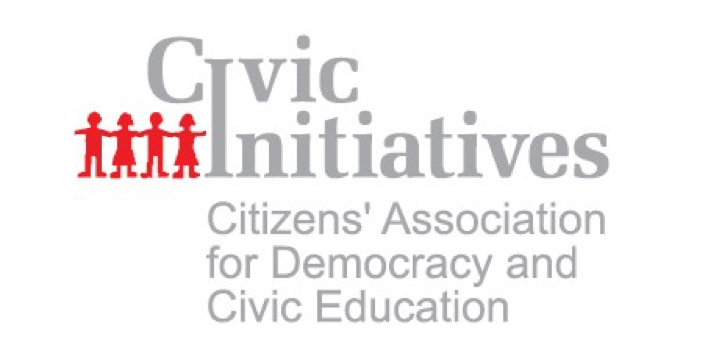
Civic Initiatives started in 1996 when a group of prominent NGO activists that were involved in the anti-war movement and non-nationalist democratic opposition recognised the need to create a social, civic base, which could support the democratic changes by educating citizens on their rights, democracy, civil society and how to be active citizens so that they are able to decide about their own lives.
Its vision is a society of equal and active citizens who make decisions about their lives in a democratic, rule-of-law state with full respect for human rights.
Its mission is to support and strengthen democratisation and good leadership in Serbia through civil society development and contribution to greater participation of citizens in the decision-making processes.
Its main focus is to support civil society development and civic participation in public life and influence the development and implementation of public policies at all levels.
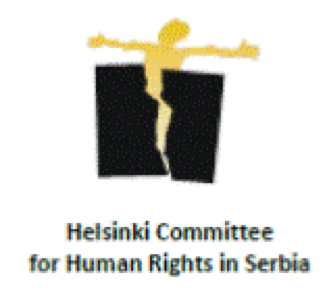
Helsinki Committee for Human Rights in Serbia
Helsinki Committee for Human Rights in Serbia is one of the leading think tanks in Serbia and the Balkans. Over the past twenty years it has been analysing trends and developments in Serbia’s political, economic and social transition towards EU membership and requesting accountability from policy and decision makers through its regular Helsinki Bulletins and annual reports, and informing the broad public. The organisation’s programs focus on dealing with the past, Serbia`s European integration, educational outreaches for the young, human rights culture, anti-discrimination, ethnic minorities, crisis resolution/conflict prevention and countering violent extremism. In setting its short- to longer-term priorities, the Helsinki Committee in Serbia posits the need for continued observation and analysis of the developments, tendencies and factors that influence Serbia’s reformist potential and democratic transition, “standardization” of public life, response to transitional justice, and the society’s and decision-makers’ prevalent mindset, including that towards any otherness (ethnic, political, religious,and so on.)
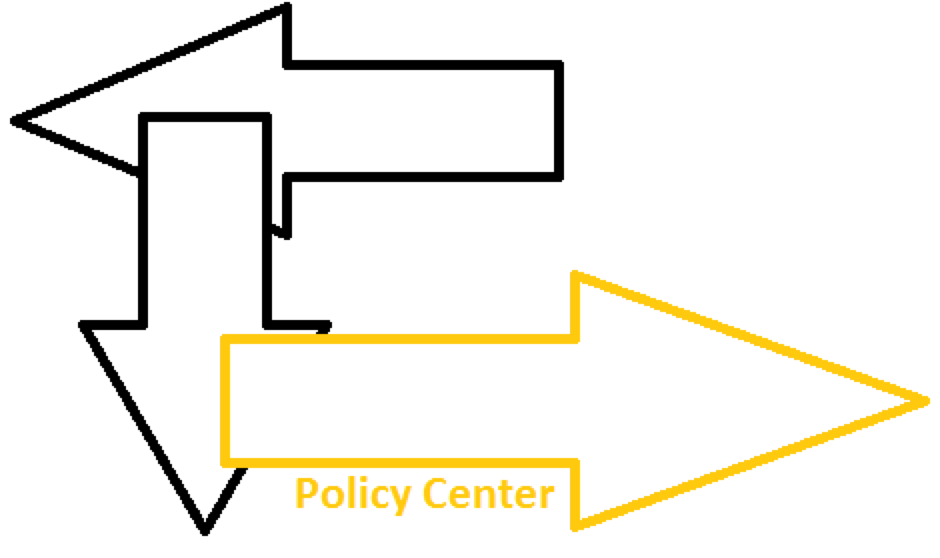
Policy Center (PC) is a think-tank organisation that operates in the fields of regional cooperation, human rights protection and the reform of the civil society in the countries of Western Balkan. PC explores, documents and analyses practice of the institutions in the fields of its work, on the basis of which it makes policy propositions and recommendations and advocates their adoption. PC contributes to the improvement of civil society in countries of Western Balkan by providing support to human rights organisations.
PC conducts its activities through two programs:
- Practical policies and practices focus its work on the research challenges in the field of regional cooperation, conflict prevention and human rights protection, all of which the society of Western Balkan is faced with. Special attention is paid to the program guarantees of non-repetition of past crimes and prevention of conflicts in sensitive areas of the Western Balkan.
- Support to civil society organisations focuses its work on the reform of the civil sector and the support of human rights organisations in capacity building and creation of sustainable system of managing the organisation and people.


